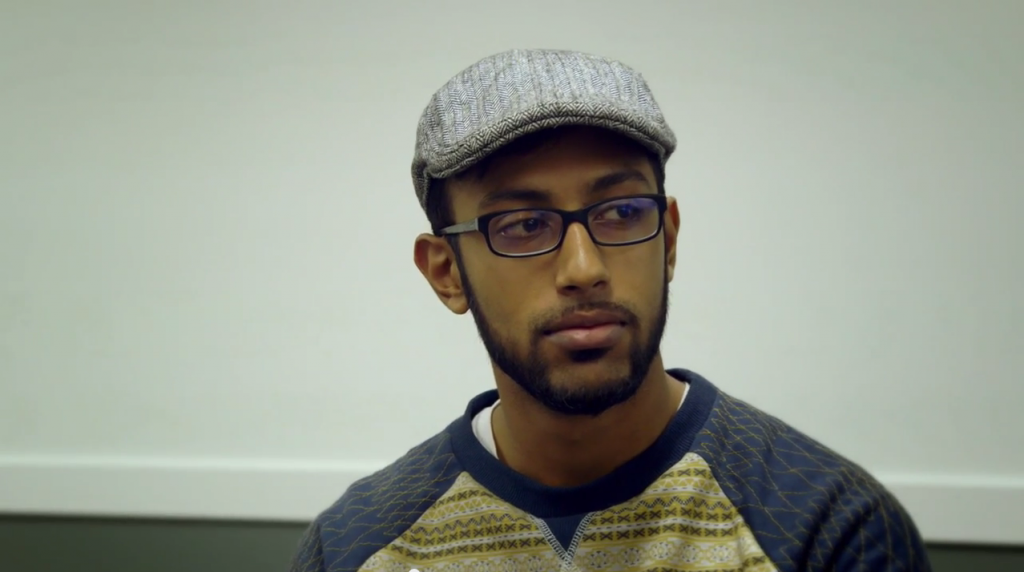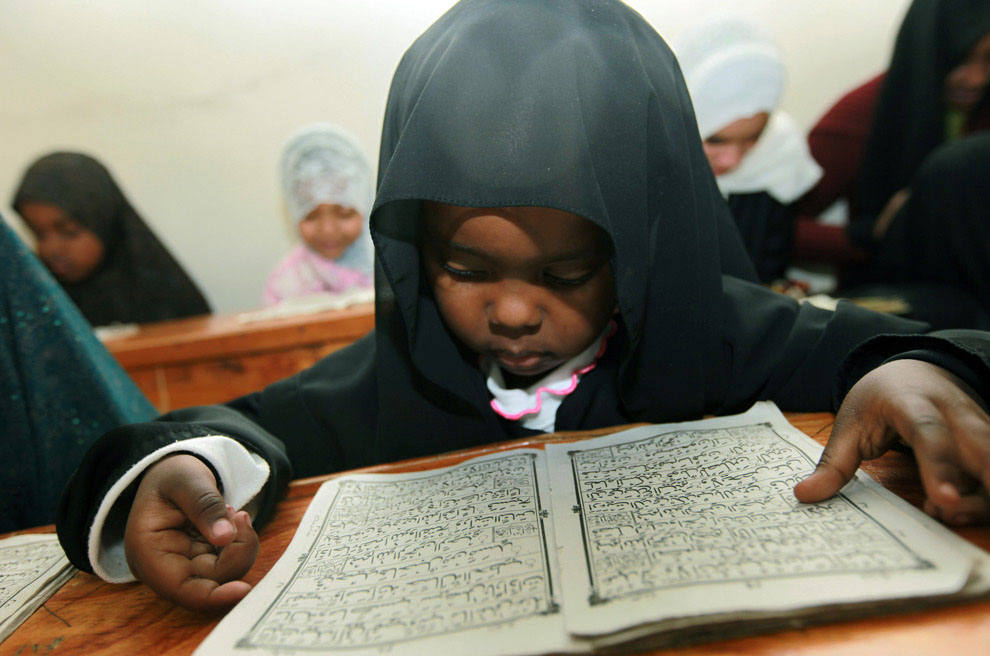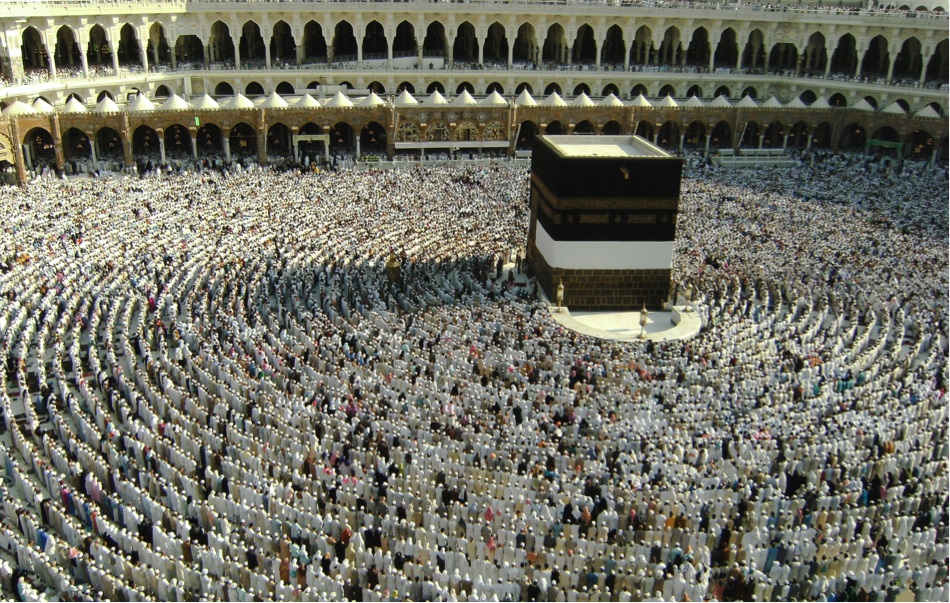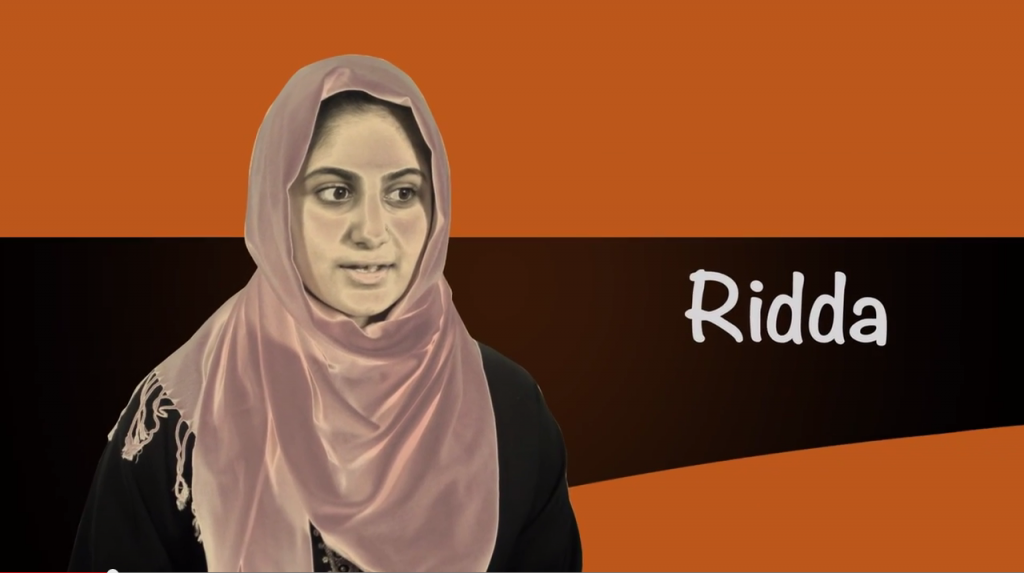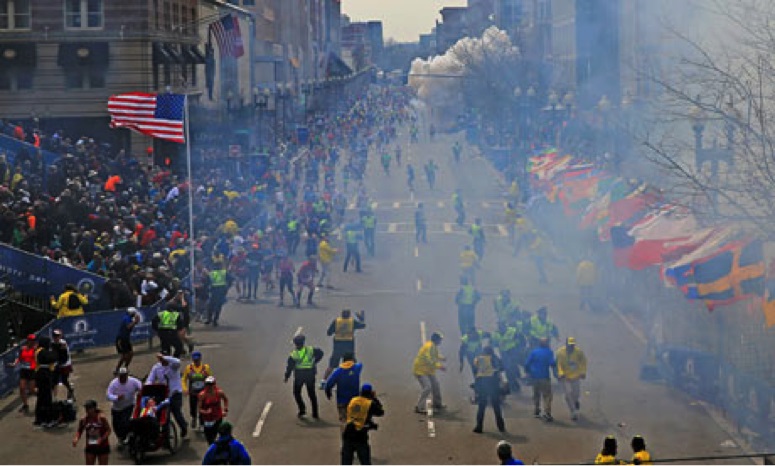|
Unit 3: Prejudice and Discrimination
Chapter 3: Islamophobia
 |
||||||||||||||||
Educator Tools
|
| 1 | |
| 2 | |
| 3 | |
| 4 | |
| 5 | |
| 6 | |
| 7 | |
| 8 |
Criticizing the Term
Some people have criticized the use of the term Islamophobia, claiming that terming critics of Islam as Islamophobic prevents honest discussion and criticisms of the religion. Others have criticized the term Islamophobia in that Muslims are more often the “target of hostility” than the religion itself, and hence a better term is Anti-Muslimism.
Some basic facts about Islam
- There are more than 1.5 billion Muslims worldwide.
- The Holy Book of Islam is called the Qu’ran. Although it is most often found in the original Arabic, it has been translated into many languages over the years.
- Islam was established about 1400 years ago by the Prophet Muhammad, who is considered the last Prophet in the line of Abraham by Muslims.
- Muslims are forbidden from eating pork or drinking alcohol.
Muslims performing Haij, or pilgrimage in Mecca, Saudia Arabia
Credit: iStock
Five pillars, or tenets of Islam:
- Testimony: Where a Muslim accepts that there is no God but God alone and that Muhammad is his prophet.
- Prayer: Ritual prayer that all Muslims are required to perform five times a day.
- Alms giving: All Muslims are required to give 1/40th (2.5%) of their annual income to the needy or poor annually.
- Fasting: Muslims are required to fast (no eating or drinking) from sunup to sundown during the holy month of Ramadan.
- Pilgrimage: All Muslims who can physically and financially afford to are required to perform pilgrimage (a journey to holy land) at least once in their lifetime.
According to Canada’s 2011 National Household Survey, there were 1,053,945 Muslims in Canada or about 3.2% of the population, making them the second largest religion after Christianity. In the Greater Toronto Area (GTA), 7.7% of the population is Muslim, and in Greater Montreal, Muslims are 6% of the total population.
ACTION 2
Think
Understanding Islam and Muslim Life
What is your knowledge of Islam and/or Muslims? Unless you are one yourself, do you know any Muslims in real-life? How many of the above facts did you already know? Share with a partner.
Consider how Muslim women in Canada might feel unsafe and targeted simply because they are wearing a hijab. Canada has taken in Syrian refugees – approximately 25,000 in 2015 and 33,000 in 2016. Can you imagine being a teenage girl who experienced atrocities in her home country and has come to Canada, a supposedly safe and welcoming country, only to find herself being targeted? Read this article and think about how you might speak out and take action against this kind of injustice.
https://www.thestar.com/news/gta/2018/01/19/new-study-shows-prevalence-of-unreported-islamaphobic-incidents-against-muslim-women-in-gta.html
ACTION 3
iSearch
When The Media Reacts
Read the following article by University of California-Davis Professor Karima Bennoune, written in the wake of the Boston Marathon bombings on April 15, 2013. In the article, find and highlight as many unfamiliar words, phrases or concepts as you can. Research online for their definitions or for more information.
Once you finish reading, role-play with a partner as Karima Bennoune being interviewed by a journalist for the article. Ask and answer at least three questions this way. Feel free to research online to help you determine both the questions and the potential answers.
40 days after Boston bombing: We must stop radical jihad
“We must stop trying to make excuses for the Tsarnaev brothers or jihad. It is wrong. Let’s support peaceful Muslims around world.”
By Karima Bennoune
In many Muslim societies, the 40th day after a death is a time to gather and grieve again with loved ones. So, in honor of this the 40th day after the atrocities in Boston, I find myself thinking again about the 264 injured people, some of whom are learning to live without their legs, and about the dead victims: 23-year-old Chinese graduate student Lingzi Lu, who had just passed her exams, friendly 29-year-old waitress Krystle Campbell, and eight year-old Martin Richard who famously carried a sign that said “No more hurting people. Peace.”
Bearing such losses in mind, I would ask anyone who wants to support the rights of people of Muslim heritage in the United States in the wake of the Boston bombings, please do not do so by explaining that jihadist terrorism is simply a response to US foreign policy, or a consequence of the alleged difficulties faced by Muslim youth in integrating into American culture, or the result of Russian bombing of Chechnya.
Many of us have criticisms of US foreign policy and that of other countries; integrating may indeed be challenging for those from immigrant backgrounds in many contexts; and Chechens did suffer through the intolerable flattening of their country by the Russian military between 1992 and 2009. (As far as I know the United States never bombed the province.) However, most Muslims, immigrants and Chechens have not become terrorists as a result. These things are no excuse for – or even explanation of – the choice to deliberately murder children and young people at a sporting event. Such a grave international crime has nothing to do with legitimate grievances and everything to do with extremist ideology and movements that indoctrinate and instrumentalize young people. We must defeat those movements which have killed so many civilians, especially in Muslim majority countries like Afghanistan, Algeria, Iraq and Pakistan.
I have just wrapped up three years of interviewing hundreds of people of Muslim heritage working against fundamentalism and terrorism around the world, and I learned many lessons from them that are helpful today. For example, Cherifa Kheddar, president of Algeria’s Association of Victims of Islamist Terrorism, or Djazairouna, who wrote right after 15 April to say how terrible the Boston bombings were. She told me that:
“We cannot defeat terrorism by an anti-terrorist battle without doing the anti-fundamentalist battle.”
In other words, it is not just the violence of radical jihadis, but the underlying ideology of Islamism that we must confront. That ideology discriminates between Muslims and non-Muslims (as evidenced by Tamerlan Tsarnaev’s reported indignation that his Imam mentioned Martin Luther King, a non-Muslim, during a sermon), and between “good” and “bad” Muslims. It justifies egregious violence against women and civilians, or at least creates an environment conducive to them.
Of course, being an Islamist or a jihadist is not the same thing as being a devout Muslim, and it is unhelpful when the US media simply describes radicalization as becoming “more religious”. This process is rather the adoption of a dangerous political stance that deploys religion in the service of an extreme agenda. The best way then to take a pro-human rights stance in the face of recent events is to support those people of Muslim heritage who are risking their lives to denounce and defy these movements. Many have raised their voices around the world in places like Afghanistan, but have rarely been heard in the west.
Discrimination against Muslims in the wake of an atrocity like the Boston bombings is wrong and unhelpful, but so too is a politically correct response, which fosters justification and denial. A young Iranian-American scholar reported that at a recent conference at UC Berkeley on Islamophobia, she was bullied by older US academics for daring to raise the issue of Muslim fundamentalism, along with anti-racism, and, in the same week as the Boston bombings, was told that there was no such thing as what she called “the Muslim right”. We must face the reality of extremism.
Many people in Muslim contexts have spoken out against terror even while facing it themselves. I think of Diep Saeeda, a peace activist I met who organized rallies against Taliban violence in Pakistan, or against the blasphemy laws despite the threat that suicide bombers would take down the protestors. Or the Women’s Action Forum in Pakistan that regularly denounces terrorism in print. After a March 2013 attack on Shia residents of Karachi, they wrote:
“[o]nce again we share unspeakable horror at the carnage…Once again we express our condemnation and outrage. Once again we wonder how many more times we will do this before there is resolve to deal with religious militancy.”
I think of the Libyans who took to the streets of Benghazi in 2012 after the murder of US ambassador Chris Stevens. Or of Somali American activist Abdirizak Bihi who campaigned against Al Shabaab recruitment in the Somali-American community in Minneapolis, after his own teenage nephew’s recruitment and death at the hands of the militants. We have to support these people and listen to their voices.
In light of the national origin of the alleged Boston bombers, I have been thinking a lot about a wonderful Chechen journalist I interviewed in Moscow in December 2010. A devout Muslim, Said Bitsoev, then-deputy editor of Novye Izvestia – an independent newspaper – was terribly concerned about what such movements were doing to his home province. “There [a]re a lot of radical people who are really bad for Chechnya. They want to put the country back in the Dark Ages.”
Before the Chechen wars, most followed a spiritual Sufi Islam, in contrast to the harsh dogma of the extremists. Said himself loathed the radicals, their new restrictions on women, and new forms of violence. He especially hated the thousands of foreign jihadis who came to Chechnya during the second war. “They brought a lot of fear. I was not able to sleep without a gun under my pillow.” These foreign fighters left behind a new breed of Chechen “radical-thinking Islamists” in Bitsoev’s view. “The worst thing,” Said tells me, is that they were “hunting for those Muslims who were representatives of tolerant Islam, and killed these people”. He gives the example of Umar Idrissov, 80, a mufti from Urus-Martan, southwest of Grozny, who was assassinated in 2000 by the Wahhabi group “Wolves of Islam”. In fact, across the Caucasus liberal Muslim clergy have been regularly targeted in recent years by extremists.
Said Bitsoev was all too aware that Chechens like those murdered clerics, or like him, are relatively inconspicuous internationally. “Radicals are interesting for the public because they are loud. We normal people are boring,” he said. We must support the daily struggles of people like Said, who are too often invisible, against those who twist the religion of their birth into a totalitarian terror manifesto.
Every effort has been made to gain permission from copyright holders to reproduce borrowed material. The publishers apologize for any errors and will be pleased to rectify them in subsequent reprints and website programming.
Educator Tools

